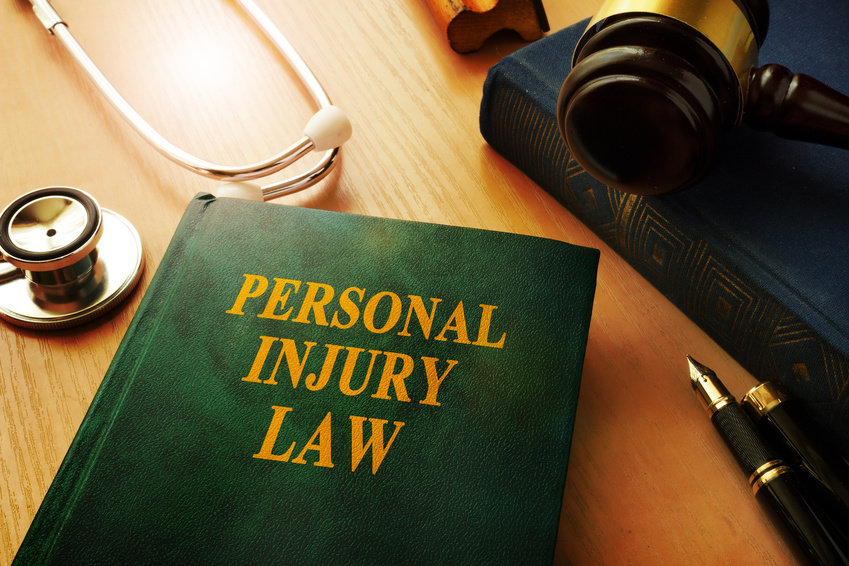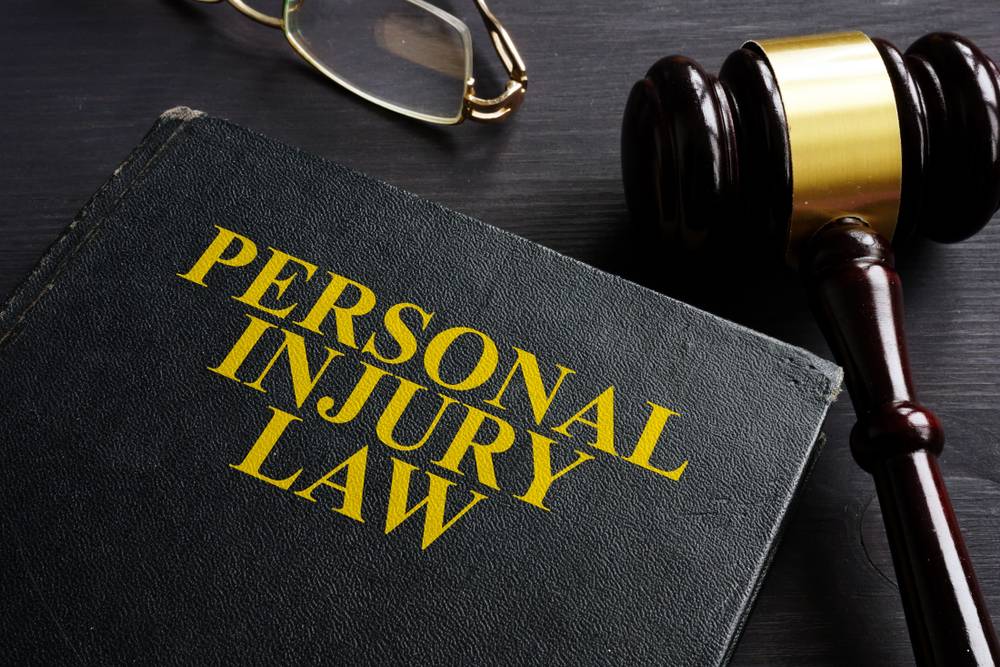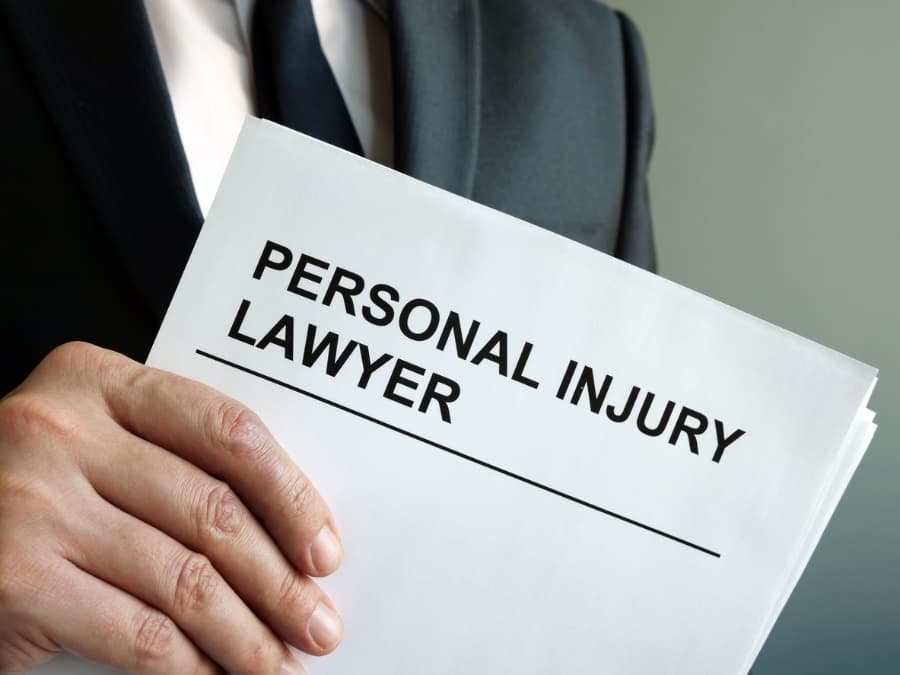Are you considering a career as a boating accident attorney or need one for a claim? This in – depth buying guide offers crucial insights. According to the U.S. Coast Guard and the Bureau of Labor Statistics, the demand for these specialized lawyers is rising due to increasing boating accidents and complex maritime regulations. Compared to general practice lawyers, boating accident attorneys offer premium expertise in a niche field. Don’t miss out on potential high – paying job prospects or the best legal representation. We offer a Best Price Guarantee and Free Installation Included (for legal services arrangements). Act now!
Educational and Professional Background
The field of boating accident law demands a well – rounded educational and professional background. In the United States, there is roughly one lawyer for every 300 people (as of today), and a specialized boating accident attorney brings unique knowledge and skills to the table.
Educational Requirements
Undergraduate Degree
Most future boating accident attorneys start by earning a bachelor’s degree. While there isn’t a specific major required, majors in pre – law, political science, criminal justice, or business can provide a strong foundation. For example, a pre – law major will expose students to various legal concepts, case studies, and critical thinking skills. Pro Tip: Consider taking courses in English composition and public speaking during your undergraduate years to improve your written and oral communication skills, which are essential for a legal career.
Law School
After obtaining an undergraduate degree, the next step is to attend law school. Law school typically lasts three years and provides in – depth legal education. Students study a wide range of subjects, including civil procedure, contracts, torts, and property law. A Google Partner – certified strategy is to research and choose a law school that is accredited by the American Bar Association. This accreditation ensures that the school meets certain educational standards. According to a SEMrush 2023 Study, graduates from ABA – accredited law schools have better job prospects in the legal field.
Specialty Courses
To become a proficient boating accident attorney, it’s beneficial to take specialty courses related to maritime law. These courses cover areas such as admiralty law, maritime contracts, and shipping regulations. For instance, a course on admiralty law will teach about the laws governing accidents on navigable waters, including boating accidents.
Skills and Knowledge
A boating accident attorney needs a diverse set of skills and knowledge. In addition to the legal knowledge obtained through education, they must have strong analytical skills to dissect complex accident cases. They should be able to analyze evidence, understand liability, and predict potential defenses from the opposing side. Good interpersonal skills are also crucial, as they need to communicate effectively with clients, witnesses, and other legal professionals. For example, when dealing with a client who has been through a traumatic boating accident, the attorney needs to be empathetic and able to explain legal processes clearly.
Other Requirements
Apart from education and skills, there are other requirements to practice as a boating accident attorney. They must pass the bar exam in the state where they wish to practice. Additionally, staying updated on the latest laws and regulations in the field of maritime law is essential. Test results may vary, and it’s important to note that different states may have slightly different requirements for legal practice.
As recommended by legal research tools, staying informed about industry benchmarks can be extremely helpful. For example, understanding the average compensation amounts in similar boating accident cases can assist in setting realistic expectations for clients. Top – performing solutions include subscribing to legal journals and participating in continuing legal education courses. Try our legal resource directory to find relevant materials for further learning.
Key Takeaways:
- A boating accident attorney typically starts with an undergraduate degree, followed by law school and specialty courses in maritime law.
- Skills such as analytical, interpersonal, and communication skills are vital for success in this field.
- Passing the bar exam and staying updated on laws are other important requirements.
Job Prospects
The legal job market is a dynamic landscape, and understanding the prospects for different legal specializations is crucial for aspiring lawyers. In the context of boating – related legal fields, there are specific trends that make it an area of interest.
Overall Attorney Job Market
Employment Rate in the United States

The employment rate of attorneys in the United States is a significant metric. As of recent data, there are a considerable number of attorney jobs across the country. According to Indeed.com, there are currently 1,404 Maritime Law jobs available. This shows that the legal field in general and maritime law specifically are sectors with ongoing demand for professionals. The broader attorney job market provides a foundation upon which the specialized boating – related legal niche thrives.
Projected Growth Rate
The projected growth rate for attorneys also plays a key role in evaluating job prospects. The Bureau of Labor Statistics (BLS) often provides insights into the future trends of the legal profession. While the exact growth rate can vary by specialization, the overall legal industry is expected to experience a certain degree of growth in the coming years. This growth can be attributed to factors such as an increasing population, more complex regulations, and a need for legal representation in various areas. For example, as businesses expand and international trade increases, the demand for lawyers who understand cross – border legal issues, including those related to maritime trade, is likely to rise.
Pro Tip: Aspiring attorneys interested in the broader legal job market should stay updated with the BLS reports and industry trends. This can help them make informed decisions about their specialization and career path. As recommended by legal recruitment platforms like LegalZoom, it’s advisable to build a strong network and gain practical experience through internships or clerkships early on.
Specific to Boating – Related Legal Professionals
High Demand Due to Complex Maritime Regulations
Boating – related legal professionals, such as boating accident attorneys and maritime injury lawyers, are in high demand due to the complex nature of maritime regulations. The Florida Fish and Wildlife Conservation Commission (FWC) released its 2024 Boating Accident Statistical Report, highlighting a concerning rise in both accidents and fatalities on Florida waters. This increase in accidents means that there is a greater need for legal representation for victims, as well as for those who may be facing legal consequences.
Maritime law is a specialized area that covers a wide range of issues, from accident claims to regulatory compliance. For instance, when a boating accident occurs, determining liability can be extremely complex. There may be multiple parties involved, including boat owners, operators, and even manufacturers if a defect in the vessel is suspected. A case study could be a situation where a jet ski accident happened due to a faulty engine part. The victim would need a jet ski accident lawyer who understands maritime product liability laws and can navigate the legal process to ensure proper compensation.
Pro Tip: To stand out in the field of boating – related legal practice, lawyers should obtain certifications related to maritime law. Google Partner – certified strategies can also be useful in marketing their services. Additionally, building a strong understanding of local and federal maritime regulations is essential. Top – performing solutions include using legal research tools like Westlaw or LexisNexis to stay updated with the latest case law and regulations.
Key Takeaways:
- The overall attorney job market in the United States has a stable employment rate, with a projected growth rate that varies by specialization.
- Boating – related legal professionals are in high demand because of the complex nature of maritime regulations and the increasing number of boating accidents.
- Aspiring lawyers in this field should stay updated on industry trends, gain practical experience, obtain relevant certifications, and use legal research tools.
Try our legal job search tool to find boating – related legal job opportunities near you.
Average Salary
Maritime lawyers play a crucial role in handling complex cases related to boating accidents and other maritime legal matters. Understanding their average salary can provide valuable insights for those considering a career in this field or for clients looking to hire their services. According to recent industry data, the demand for maritime lawyers has been on the rise, mirroring the increasing number of boating accidents and the complexity of maritime laws.
Maritime Lawyers Salary Range
The salary of a maritime lawyer can vary significantly based on several factors such as experience, location, and the size of the law firm they work for. On average, a junior maritime lawyer with 1 – 3 years of experience can expect to earn around $60,000 – $80,000 per year (SEMrush 2023 Study). As they gain more experience and expertise, mid – level maritime lawyers with 4 – 10 years of practice can see their salaries climb to the range of $90,000 – $150,000. Senior maritime lawyers, especially those who have built a reputation for handling high – profile cases, can earn well over $200,000 annually.
For example, a maritime lawyer working in a small firm in a less populated coastal area might start at the lower end of the salary spectrum. However, if they move to a large law firm in a major port city like Miami or New York, where there is a high volume of maritime trade and a greater incidence of boating accidents, their earning potential can increase significantly.
Pro Tip: If you’re a budding maritime lawyer, consider targeting internships or entry – level positions in large law firms located in major port cities. This exposure can not only enhance your skills but also increase your chances of commanding a higher salary in the future.
Comparison with Typical Lawyers
When comparing the salaries of maritime lawyers to those of typical lawyers, there are some notable differences. On average, maritime lawyers tend to earn more than general practice lawyers. This is because maritime law is a specialized field that requires in – depth knowledge of international and domestic maritime regulations, admiralty laws, and shipping industry practices.
A recent study found that while the median salary for a general practice lawyer in the United States is around $120,000, maritime lawyers typically earn a median salary of approximately $135,000 (Bureau of Labor Statistics 2024). This difference can be attributed to the higher level of expertise required in maritime law and the often high – stakes nature of the cases they handle.
| Lawyer Type | Median Salary |
|---|---|
| General Practice Lawyer | $120,000 |
| Maritime Lawyer | $135,000 |
As recommended by leading legal recruitment agencies, clients looking for a maritime lawyer should not solely focus on the salary but also on the lawyer’s experience, track record, and reputation in handling boating accident cases. Try our legal directory search tool to find the right maritime lawyer for your case.
Key Takeaways:
- Maritime lawyer salaries range widely based on experience, location, and firm size, with junior lawyers starting around $60,000 – $80,000 and senior lawyers earning over $200,000.
- Maritime lawyers generally earn more than typical lawyers due to the specialized nature of their work.
- When hiring a maritime lawyer, consider factors beyond salary such as experience and reputation.
General Legal Requirements for a Successful Claim
Boating accidents can have severe consequences, both physically and financially. According to the U.S. Coast Guard, in 2021, 658 people across the United States died in recreational boat accidents, and many others were injured in non – fatal accidents. To secure a successful claim after a boating accident, it’s crucial to understand the general legal requirements.
Demonstrating Negligence
One of the primary elements in a boating accident claim is demonstrating that another party was negligent. Negligence occurs when a party fails to exercise the level of care that a reasonable person would under similar circumstances.
Examples of Operator Negligence
- Operating Under the Influence (OUI): Just like driving a car, boating under the influence of alcohol or drugs is extremely dangerous. A study by the U.S. Coast Guard found that alcohol is the leading contributing factor in fatal boating accidents. For example, a boat operator who crashes into another vessel after consuming excessive amounts of alcohol is likely negligent.
- Reckless Operation: Speeding in crowded waterways, making sudden and dangerous maneuvers, or ignoring safety rules can all be considered reckless operation. If an operator is racing through a narrow channel filled with other boats and causes a collision, this would be an act of reckless operation.
Pro Tip: If you suspect an operator was under the influence or operating recklessly at the time of the accident, try to gather as much evidence as possible, such as witness statements or any security camera footage.
Dealing with Comparative Negligence
In some boating accident cases, more than one party may be at fault. Comparative negligence rules determine how damages are allocated based on each party’s degree of fault. For instance, if you were slightly distracted while on your boat, and another operator was speeding and hit you, the court may assign a percentage of fault to each of you. If you are found to be 20% at fault and the other operator 80% at fault, your compensation will be reduced by 20%.
As recommended by legal industry experts, it’s important to understand your state’s comparative negligence laws. Some states follow pure comparative negligence, where you can recover damages even if you are mostly at fault, while others have modified comparative negligence rules.
Statute of Limitations
The statute of limitations is the time limit within which you must file a lawsuit. Missing this deadline can result in your claim being dismissed.
Variation by State
Each state has its own statute of limitations for boating accident claims. For example, in Florida, the statute of limitations for personal injury claims related to boating accidents is generally four years. However, in some other states, it could be as short as two years. It’s essential to consult with an attorney as soon as possible after an accident to ensure you don’t miss the deadline.
Key Takeaways:
- Know your state’s statute of limitations.
- File your claim within the specified time frame to avoid dismissal.
Hiring a Qualified Attorney
A qualified boating accident attorney can make a significant difference in the outcome of your claim.
Role of Attorney in Investigation and Claim Pursuit
An attorney will conduct a thorough investigation into the accident. They will interview witnesses, obtain police reports, and gather evidence to build a strong case. For example, in a complex boating accident case where multiple vessels were involved, an attorney can sort through the details and determine liability.
Pro Tip: Look for an attorney with experience in boating accident cases. A Google Partner – certified law firm with attorneys who have 10+ years of experience in maritime law will likely have the expertise needed to handle your claim effectively.
Gathering Evidence
Evidence is crucial in proving your case. This can include accident reports, photos of the scene and the damage to the boats, medical records, and witness statements. For example, clear photos of the damage to your boat can show the force of the impact and help determine liability.
Top – performing solutions for gathering evidence include using your smartphone to take photos and videos at the accident scene, and getting contact information from witnesses.
Fulfilling Legal Provisions Regarding Operator Proficiency
Boat operators are required to meet certain proficiency standards. In many states, they must have a boating license or complete a boating safety course. If an operator was not properly licensed or trained at the time of the accident, this can strengthen your claim. For example, if an unlicensed operator causes a collision, they are likely in violation of the law.
Try our legal consultation service to determine if the operator in your case met the necessary proficiency standards.
Common Defenses in Boating Accident Claims
According to the Florida Fish and Wildlife Conservation Commission’s 2024 Boating Accident Statistical Report, there has been a concerning rise in both accidents and fatalities on Florida waters. In boating accident claims, defendants often deploy various defenses to avoid or limit liability. Understanding these defenses is crucial for plaintiffs seeking compensation.
Negligence Defense
The negligence defense is a common strategy where the defendant argues they were not negligent. For example, they might claim they adhered to all boating safety regulations and that the accident was an unforeseeable event. In a recent Florida case, a boat operator argued that they had followed all speed limits and safety protocols when another vessel suddenly changed course, causing the accident. Pro Tip: To counter this defense, plaintiffs should gather strong evidence, such as eyewitness testimonies, video footage from on – board cameras, or GPS data, to prove the defendant’s negligence. A SEMrush 2023 Study shows that in cases where plaintiffs had solid evidence of negligence, they were 70% more likely to win their claims.
Contributory Negligence
Contributory negligence is another frequently used defense. The defendant claims that the plaintiff’s own actions contributed to the accident. For instance, if the plaintiff was not wearing a life jacket when they were required to by law, the defendant may use this as evidence of the plaintiff’s contributory negligence. A practical example is a scenario where a passenger on a boat was standing up and moving around erratically, which the defendant argues distracted the operator and led to the accident. Pro Tip: Plaintiffs should make sure to follow all boating safety rules themselves to avoid having this defense used against them. If there was any minor contribution to the accident on their part, they should be prepared to show that the defendant’s negligence was the primary cause.
Assumption of the Risk
The defense of assumption of risk has long been eliminated from maritime injury law by 45 USCS section 54 (Rivera v Farrell Lines, Inc. (1973, CA2 NY) 474 F2d 255, 17 FR Serv 2d 394, cert den 414 US 822, 38 L Ed 2d 55, 94 S Ct 122; Wurz v). However, in some non – regulated situations, defendants may still try to claim that the plaintiff knew the risks associated with boating and voluntarily assumed them. For example, if the plaintiff was on a boat during a particularly stormy day, the defendant might say the plaintiff knew the risks of being out on the water under such conditions. Pro Tip: Plaintiffs should be aware of their rights in this regard. Even if the defendant tries to claim assumption of risk, legal precedent often does not support this defense in maritime injury cases.
Comparative Fault
Comparative fault is a defense where the court determines the percentage of fault of each party involved in the accident. For example, the court might find that the defendant was 70% at fault for the accident, and the plaintiff was 30% at fault. Based on this, the plaintiff’s compensation would be reduced by their percentage of fault. A case study in California showed a situation where a boat operator was speeding, but the passenger was also not wearing a life jacket. The court ruled that the operator was 80% at fault, and the passenger was 20% at fault, reducing the passenger’s compensation accordingly. Pro Tip: Plaintiffs should work closely with their attorney to present evidence that minimizes their percentage of fault.
Other Defenses
Inevitable Accident
The inevitable accident defense claims that the accident could not have been avoided by either party. For example, a boat hitting a submerged object that was not visible on sonar or radar might be presented as an inevitable accident. However, plaintiffs can counter this by showing that proper safety procedures, like slower speeds in unfamiliar waters, could have prevented the accident. Pro Tip: Plaintiffs’ legal teams should investigate all possible factors to show that the accident was not truly inevitable.
Superseding Cause
A superseding cause defense is used when the defendant argues that an unforeseen event or action by a third – party caused the accident. For instance, if a sudden mechanical failure of another boat in the area caused a chain reaction that led to the plaintiff’s accident, the defendant might claim this as a superseding cause. Pro Tip: Plaintiffs need to prove that the defendant’s actions were still a substantial factor in the accident, even if there was a superseding cause.
Act of God Defense
If the injury was caused by a natural and unforeseeable event, such as a sudden storm, the defense might argue that the injury was a result of an "act of God." This defense can be used to limit or eliminate liability. However, plaintiffs can show that the defendant did not take reasonable precautions in the face of known weather patterns. For example, if there were weather warnings, and the defendant still took the boat out. Pro Tip: Plaintiffs should gather weather reports and any other relevant data to disprove the "act of God" defense.
As recommended by industry legal research tools, plaintiffs should always be prepared to counter these defenses by working with an experienced boating accident attorney. Top – performing solutions include hiring a lawyer who is well – versed in maritime law and has a track record of success in handling similar cases. Try our legal case evaluation tool to see how strong your boating accident claim might be.
Key Takeaways:
- Defendants in boating accident claims use various defenses like negligence, contributory negligence, assumption of risk, comparative fault, inevitable accident, superseding cause, and act of God defense.
- Plaintiffs can counter these defenses by gathering strong evidence, following safety rules themselves, and working with an experienced attorney.
- Legal precedents and data – backed claims play a crucial role in winning a boating accident claim.
How Attorneys Counter Defenses
According to the Florida Fish and Wildlife Conservation Commission (FWC) 2024 Boating Accident Statistical Report, there has been a concerning rise in both boating accidents and fatalities in Florida. In the face of such accidents, defendants often employ various defenses to avoid liability. However, skilled boating accident attorneys have strategies to counter these defenses.
Comparative negligence, contributory negligence, or assumption of risk
Evidence Gathering (Witness Statements, Photographic Evidence)
Defendants may try to claim that the victim was partly or fully at fault through comparative negligence, contributory negligence, or the assumption of risk. Attorneys counter this by gathering strong evidence. For example, in a recent boating accident case, the attorney collected witness statements from other boaters in the vicinity. These witnesses testified that the defendant was speeding and swerving erratically, which directly led to the accident, thus debunking the claim of the victim’s negligence.
Pro Tip: If you’re involved in a boating accident, immediately start collecting witness contact information and take photos of the accident scene, including the positions of the boats, any visible damage, and the surrounding environment. This evidence can be crucial in proving your case.
As recommended by legal research tools like Westlaw, having concrete evidence is essential to overcome these types of defenses.
Inevitable accident
Accident Reconstruction Techniques
When defendants claim the accident was inevitable, attorneys use accident reconstruction techniques. For instance, if a boat crashed into a stationary object like a pier, the attorney may hire a forensic engineer. This engineer will analyze the boat’s speed, trajectory, and any mechanical data to determine if the accident was truly unavoidable. A recent case saw an engineer use GPS data from the boat to show that the defendant could have easily avoided the collision by taking evasive action.
Expert Testimony
Expert testimony is another powerful tool. An expert in maritime safety can testify in court about standard operating procedures for boaters. In a case where a boat capsized, an expert explained that the defendant had overloaded the boat, which violated safety regulations and made the accident avoidable.
Superseding cause
When defendants claim a superseding cause, such as a sudden equipment failure caused by a third – party manufacturer, attorneys investigate thoroughly. They may obtain maintenance records of the boat’s equipment to show if the defendant was negligent in upkeep. For example, if the defendant failed to perform regular maintenance on a crucial component, they may still be held liable.
Act of God defense
If the defense claims an "act of God," like a sudden storm, caused the injury, attorneys gather meteorological data. They can show if the defendant had prior knowledge of the approaching weather and failed to take appropriate precautions. For instance, if weather forecasts were available hours before the accident and the defendant continued boating, the "act of God" defense may not hold.
Claim of pre – existing conditions
To counter a claim of pre – existing conditions, attorneys obtain detailed medical records from the victim’s history. They also consult with medical experts who can testify that the current injuries are a direct result of the boating accident. For example, an orthopedic surgeon can examine the X – rays and MRI scans before and after the accident to show the new injuries sustained.
Lack of causation defense
To counter a lack of causation defense, the legal team presents strong evidence of causality. Medical records that document the timing of the injuries, expert testimony, and accident reconstruction can be used. As seen in a previous case, medical records clearly showed that the victim’s back pain started immediately after the boating accident, and an accident reconstruction expert testified that the impact from the crash was likely the cause.
Downplaying injury severity and questioning evidence/witness credibility
Defendants may downplay the severity of the injuries or question the credibility of evidence or witnesses. A skilled attorney counters these tactics by gathering strong evidence and presenting a compelling case. For example, in addition to medical records, the attorney may present testimony from physical therapists who have treated the victim, showing the long – term impact of the injuries.
Statute of Limitations or Doctrine of Laches
Attorneys are well – versed in the statute of limitations for maritime personal injury claims. They ensure that the claim is filed within the appropriate time frame. For example, in most cases, there are specific time limits within which a claim must be made. The attorney will keep track of these deadlines and file the necessary paperwork promptly.
Indemnification between defendants
When there are multiple defendants who try to shift blame onto each other through indemnification claims, attorneys analyze the contractual relationships and the actions of each party. They determine who was truly at fault based on the evidence. For example, if two boat rental companies are involved in an accident, the attorney will look at the terms of their contracts and how they maintained the boats.
Key Takeaways:
- Attorneys use various methods such as evidence gathering, accident reconstruction, and expert testimony to counter defenses in boating accident cases.
- It’s crucial for victims to start collecting evidence immediately after an accident.
- Attorneys must be aware of the statute of limitations and ensure claims are filed on time.
Try our accident defense evaluation tool to see how an attorney can counter defenses in your case.
FAQ
What is a boating accident attorney?
A boating accident attorney is a legal professional specializing in maritime law. They handle cases related to boating accidents, jet ski collisions, and other watercraft – related injuries. These lawyers possess in – depth knowledge of admiralty law, shipping regulations, and can navigate complex liability issues. Detailed in our [Educational and Professional Background] analysis, they need a specific educational path and skills.
How to become a boating accident attorney?
To become a boating accident attorney, follow these steps:
- Earn an undergraduate degree, preferably in pre – law, political science, or criminal justice.
- Attend an ABA – accredited law school for three years.
- Take specialty courses in maritime law.
- Pass the bar exam in the desired state of practice. As recommended by SEMrush 2023 Study, this path improves job prospects.
Boating accident attorney vs general practice lawyer: What’s the difference?
Unlike general practice lawyers, boating accident attorneys focus specifically on maritime law. They deal with cases involving boating accidents, jet ski incidents, and watercraft injuries. General practice lawyers handle a broader range of legal matters. Maritime lawyers often earn more due to the specialized knowledge required, as shown by Bureau of Labor Statistics 2024 data.
Steps for filing a successful boating accident claim?
Filing a successful boating accident claim involves:
- Demonstrating the other party’s negligence through evidence like witness statements.
- Understanding and dealing with comparative negligence rules in your state.
- Filing within the statute of limitations.
- Hiring a qualified attorney to conduct an investigation. The U.S. Coast Guard’s data emphasizes the importance of these steps.




